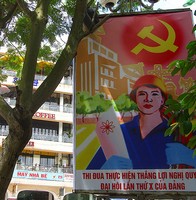HO CHI MINH CITY, Vietnam -- Economic volatility and a restrictive political system have prevented Vietnam from fulfilling its potential as a significant Southeast Asian actor. But with the “China+1” effect -- where rising costs in the Middle Kingdom push investment and manufacturing to other locations -- likely to gather momentum, and amid unusually strong signals of reform emanating from Hanoi, there is renewed cause for optimism. The incentives to change have never been greater, and after several false dawns, the opportunity now being presented to Vietnam may be too compelling for even the hard-liners to resist.
With a young population, decent resource endowments and a strategically advantageous location, Vietnam's fundamentals are unquestionably strong. It has clear advantages as a manufacturing and logistics hub, tourism destination, and agricultural and physical resource producer. As the break-neck expansion of Vietnam's coffee industry shows, it also has the Asian knack for rapid transformation, even as most of its developmental “low-hanging fruit” remain unpicked.
Vietnam's cultural and geographical proximity to China put it in a privileged position to piggyback on the Dragon's Rise. Meanwhile, a marked improvement in relations with Washington over the past two years -- a move seen primarily as a hedge against increasing Chinese influence -- has also caught the attention of traditional Western investors. Economically blessed, coveted by superpowers and large enough to hold its own against other ASEAN states, Vietnam is in an almost unique position to flourish in the “Asian Century.”

